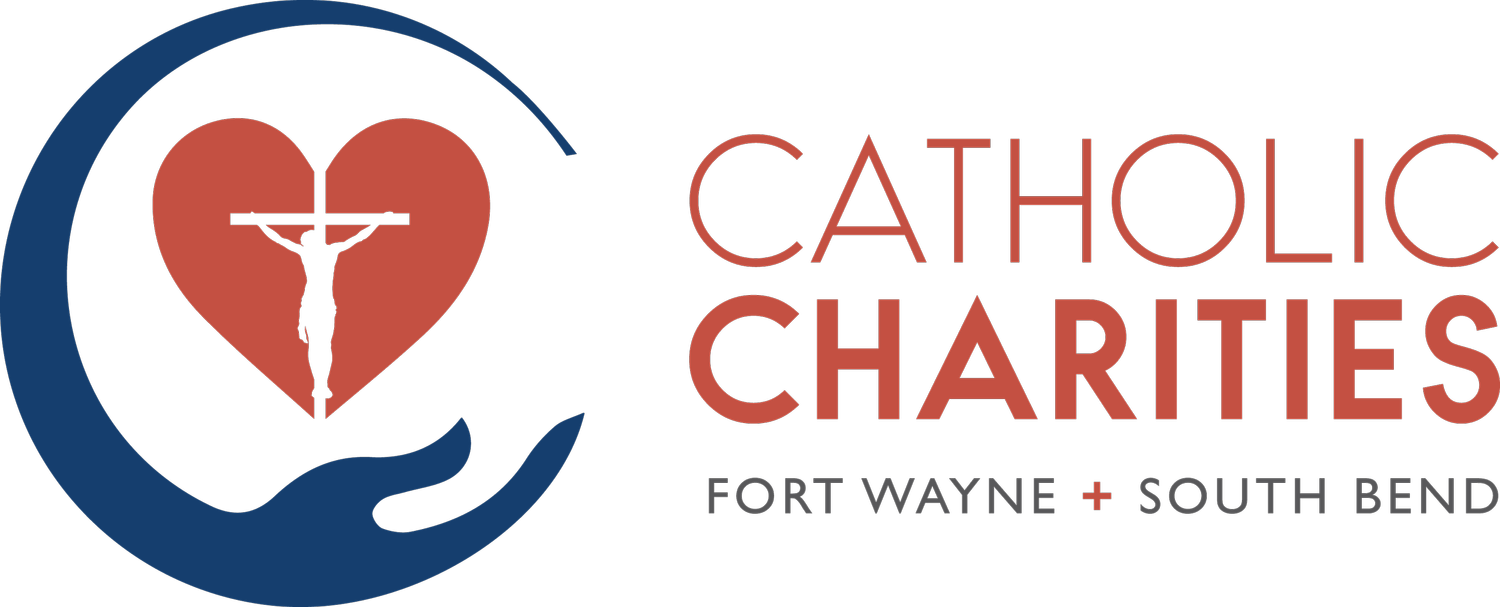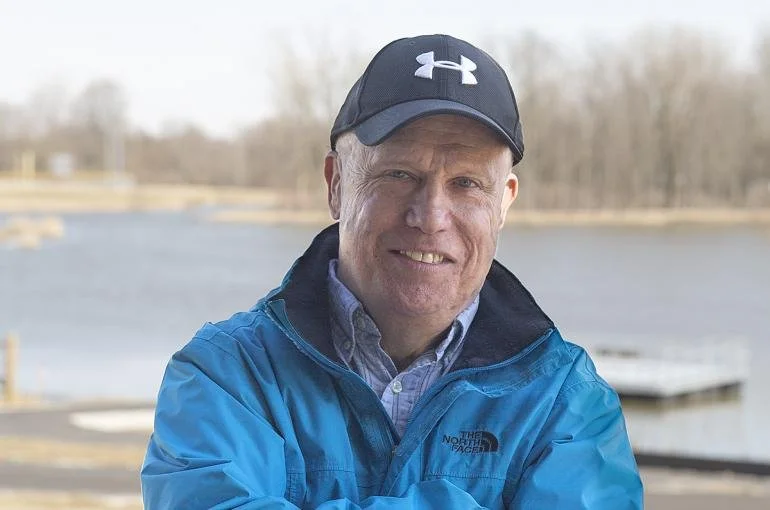Mentor Tom Martin helps a student stay on the straight and narrow.
“That’s the coolest thing I’ve seen all day!” said Daniel, who was amazed at the site of a large-mouth bass eating a smaller fish. It happened when he went fishing for the first time with his Catholic Charities mentor.
Daniel (not his real name), a high-school student with special needs, lives with a grandparent and is struggling in school with poor grades and under developed social skills. Understanding his circumstances, Daniel’s guidance counselor at school referred him to the Catholic Charities Mentor Program.
Tom Martin says his first job as a mentor is to develop rapport with the student. When he learned that Daniel enjoys outdoor activities, he took him fishing and hiking at Bixler Lake in Kendallville. The two have also gone kayaking and on other occasions taken him to movies and dinner. Through these activities, Daniel was able to open up to and bond with Tom.
“Trust between the mentor and student is crucial,” says Shirley Johnson, Mentoring Program Coordinator. “For many, this is the only stable adult relationship they have in their lives.”
Tom learned about becoming a mentor through his parish Immaculate Conception in Auburn. He immediately warmed to the idea and thought he could put his many years of teaching experience to work for kids who greatly need a positive role model.
Tom emphasizes that there are a couple very important ground rules when he and Daniel spend time together: first, no video games and, second, no cell phones.
“We want kids to learn how to socialize with people, not phones,” says Tom. “And it’s amazing to see how a little one-on-one time in the outdoors can help a young man come out of his shell.”
The Mentoring Program, which is made possible by a collaboration between Catholic Charities USA and the federal Office of Juvenile Justice Prevention, is for students age nine to 17. Mentors typically work with students six to eight hours a month and help mentees like Daniel work on their individual goals.
“We are seeing many kids being raised by grandparents,” says Shirley. “In many cases, parents lose custody because of opioid addiction, which is rampant in some rural areas.”
When a student first enters the program, Shirley begins by creating a Development Asset Profile (DAP), which provides a baseline for assessing a student’s progress. For example, the assessment revealed that Daniel needs to learn to do chores at home without being told. He also needs to develop better social skills with his peers.
Tom, who has 23 years of experience as a special education teacher, was matched with Daniel because of his struggles in school. He has used his knowledge of the school system to advocate for better classroom support and accommodation of Daniel’s individual needs.
“It helps to know the ropes,” says Tom.
One of the most important tasks of the mentors is to help students explore vocational interests. For example, the mentor might take a student to the Impact Institute in Kendallville to explore construction trades, automotive service or culinary arts. Whatever their interest, the important thing is that it can connect students to a future beyond high school.
“It’s really gratifying to see a student like Daniel blossom,” says Tom. “It’s amazing to see how a little effort can really turn a kid around.”
Want to become a mentor?
The Mentoring Program will match mentors and students in Noble, Steuben and Dekalb counties through a referral system and application process. The goal for students is to increase school attendance as well as prevent truancy and other at-risk behaviors. Here are the personal attributes necessary to become a mentor:
Time to spend with a mentee
Patience to deal with the mentee and their family
Good communication skills
Creativity in planning time together
Flexibility to adjust to circumstances
Share personal interests and hobbies with a mentee
Learn about mentees academic grades and attendance
Choose activities to assist with their learning
Listen to their mentee’s concerns
Caring attitude toward their mentee
Mentor Requirements:
Sign up for 12 months
Commit to one to two hours a week
(or six to eight hours a month)
Complete an application and interview
Pass a background check
Participate in an orientation
Pass the TB test
Get fingerprinted

